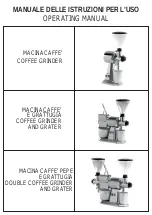
English |
17
Bosch Power Tools
1 609 92A 37S | (19.9.16)
explosion. Penetrating a water line causes property dam-
age.
Avoid contact with “live” conductors.
The pneumatic
tool is not insulated; contact with a “live” conductor can
lead to an electric shock.
The dust developing during sanding,
sawing, grinding, drilling and similar
operations can act carcinogenic, teratogenic or mutagen-
ic.
Some of the substances contained in these dusts are:
–
Lead in lead-based paints and varnishes;
–
Crystalline silica in bricks, cement and other masonry
work;
–
Arsenic and chromate in chemically treated wood.
The risk of disease depends on how often you are ex-
posed to these substances. To reduce the risk, you should
work only in well ventilated rooms with appropriate protec-
tive equipment (e. g. with specially designed respirators that
filter out even the smallest dust particles).
By working with certain materials, dusts and vapours
can form, which can create an explosive atmosphere.
By working with pneumatic tools, sparks can be produced,
which can ignite the dust or the vapours.
When working on the workpiece, additional noise can
develop, which can be avoided through appropriate
measures (e. g. by using damping materials on occur-
rence of ringing noise from the workpiece).
When the pneumatic tool is equipped with a silencer,
always ensure that it is available and in proper working
condition when operating the pneumatic tool.
Vibration effects may cause damage to the nerves and
blood circulation disorders in the hands and arms.
If you notice that the skin of your fingers or hands be-
comes numb, tingles, hurts or turns white, stop work-
ing with the pneumatic tool, notify your employer and
consult a physician.
To hold the weight of the pneumatic tool, if possible,
use a stand, a spring balancer or an equalizer.
An insuf-
ficiently mounted or damaged pneumatic tool may lead to
excessive vibrations.
Hold the pneumatic tool with a not too firm yet secure
grip, compliant with the required hand-reaction forces.
The vibrations can be intensified the firmer you hold the
tool.
When universal rotary couplings (bayonet couplings)
are being used, retaining pins are required. Use Whip-
check hose restraints to protect against failed hose
connections or the connection between hose and pneu-
matic tool.
Never carry the pneumatic tool by the hose.
Use auxiliary aids to absorb reaction torque, such as a
supporting fixture. If this is not possible, use an auxilia-
ry handle.
Symbols
The following symbols could have a meaning for the use of
your pneumatic tool. Please take note of the symbols and
their meaning. The correct interpretation of the symbols will
help you to use the pneumatic tool in a better and safer man-
ner.
Product Description and Specifica-
tions
Read all safety warnings and all instruc-
tions.
Failure to follow the warnings and in-
structions may result in electric shock, fire
and/or serious injury.
While reading the operating instructions, unfold the fold-out
page with the illustration of the pneumatic tool and leave it
open.
WARNING
Symbol
Meaning
Before installing, operating, re-
pairing, maintaining and replacing
accessories as well as prior to
working near by the pneumatic
tool, please read and observe all in-
structions.
Failure to follow the fol-
lowing safety warnings and instruc-
tions may result in serious injury.
W
Watt
Power output
Nm
Newton metre
Unit of energy
(torque)
kg
lbs
Kilogram
Pounds
Mass, weight
mm
Millimetre
Length
min
s
Minutes
Seconds
Time period,
duration
min
-1
Revolutions or motions per
minute
No-load speed
bar
psi
bar
pounds per square inch
Air pressure
l/s
cfm
Litres per second
cubic feet/minute
Air consumption
dB
Decibel
Unit of relative
loudness
QC
Quick-change chuck
Tool holder
Symbol for hexagon socket
Symbol for external drive
UNF
US fine thread
(Unified National Fine
Thread Series)
G
NPT
Whitworth thread
National pipe thread
Connecting thread
OBJ_BUCH-580-004.book Page 17 Monday, September 19, 2016 3:53 PM
















































